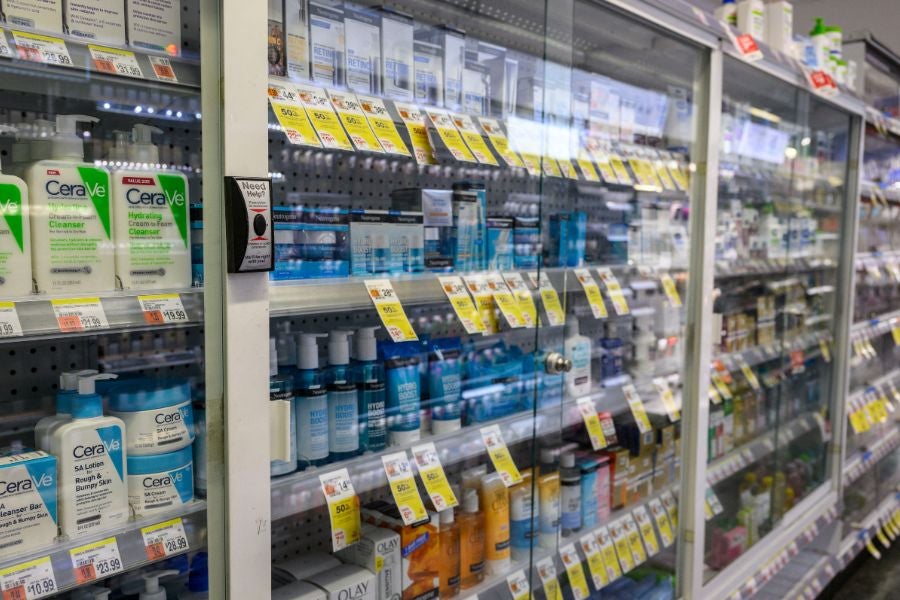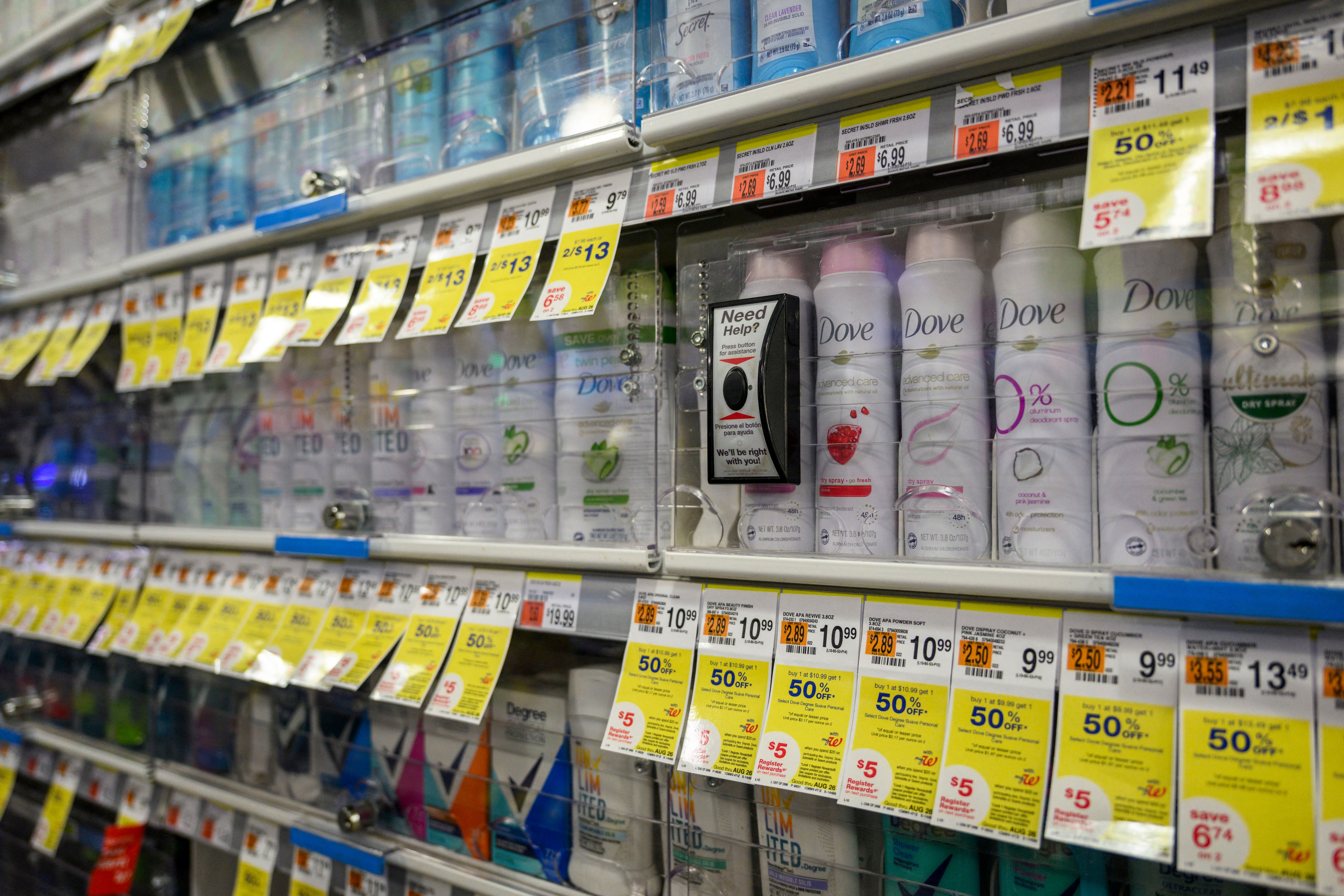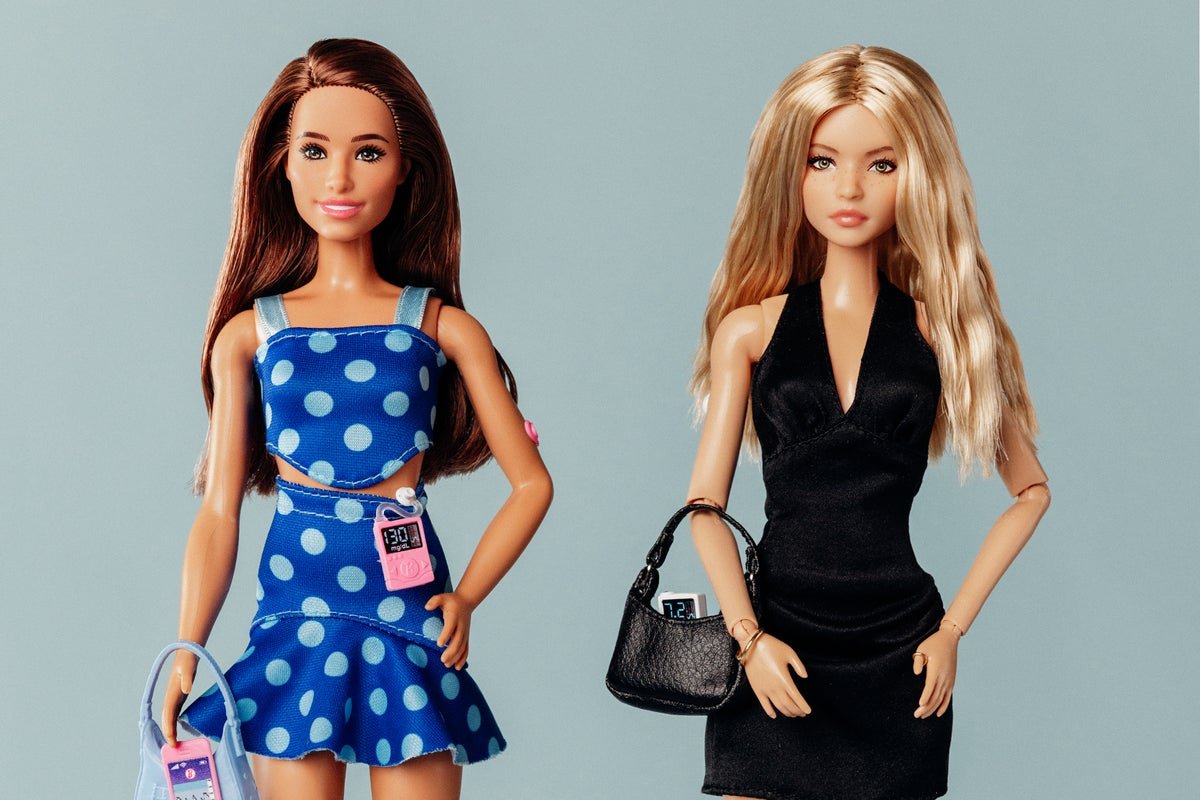A recent visit to a CVS led to claims that it was “a Museum of the American Pharmacy” due to the struggle to retrieve items from behind the locked glass cases – and the panic that falls over shoppers as they hunt for items as a worker stands feet away waiting to lock it up again.
It’s a feeling shared by many, but highlighted recently by Washington Post columnist Matt Bai. In his column, “CVS was so worried about shoplifting that it stole its own soul,” Bai recounts the awkward pressure to ring a bell for an “emotionless” employee to unlock the glass case containing teeth whitening strips per his son’s request.
“In the old CVS, I’d have happily spent five minutes idly breaking down the pros and cons,” Bai wrote about finding the correct whitening strips. ”But now, this poor woman is standing there watching and waiting, and I’m self-conscious. She’s the only one working here. She has things to do.”
To fight organized theft, CVS locations are locking up items, but Bai cited a Consumer World survey showing fewer than 1 in 3 shoppers stay and wait for the same item once they see glass cases. The pain over locked-up cases has also spread on social media as shoppers complain about the wait to get items that once were easily grabbed.
After Bai grabbed a random box of whitening strips, he said the employee promptly locked the case, and when he hesitated and informed her that he’d need her assistance in another aisle, she cheerfully told him to “just ring the bell” before walking away.
“Forty seconds later, two aisles over, I do exactly that, and when my new friend reappears and opens the case, I grab the first three bottles of body wash I see,” Bai wrote. “I cannot subject her to another round of anguished vacillation. We’re not picking out a puppy here.”

Upon returning home, Bai realized he actually bought a teeth whitening serum and body lotion, not wash, making his initial $80 trip a bust.
Bai argued that CVS is losing sight of its true value, not just restocking basics like an online retailer, but offering the in-store experience of discovery and spontaneous finds. An experience that is taken away when items are locked and an employee must grant access.
“What your neighborhood chain can offer is the chance to wander down an aisle and suddenly find some new, cucumber-scented solution to a problem you didn’t even know you had. It’s the possibility store,” he wrote.
Although he was able to return the items, Bai concluded that, “Life is full of stressful decisions you end up regretting. Bodywash shouldn’t be one of them.”
In response to Bai’s opinion piece, a CVS representative told The Independent, “Retail theft is a challenge for all retailers. We know keeping products locked up can be inconvenient, but it’s important that we keep products in stock and available for our customers to purchase.”
“Different products experience different theft rates, depending on store location and other factors, and our product protection decisions are data-driven. We utilize a variety of different measures to deter or prevent theft and locking a product is a measure of last resort,” the spokesperson added.

Bai isn’t the only person frustrated with CVS and its anti-theft prevention.
“CVS should have a deal where if you go 10 visits without stealing you get a key to unlock the shelves,” one person said in a viral tweet in May.
“At that point, it makes more sense for them to just take people’s orders and provide it for them at the front of the store,” someone else tweeted in April.
Another person wrote, “I’d walk in that store and walk right back out. I’m not flagging someone down just to get some beef jerky.”
In January, CVS tested a new app that lets customers unlock glass cabinets themselves. The company said it will expand to about 10 West Coast stores this year.
#Shopper #details #modernday #horrors #lockedup #items #CVS



